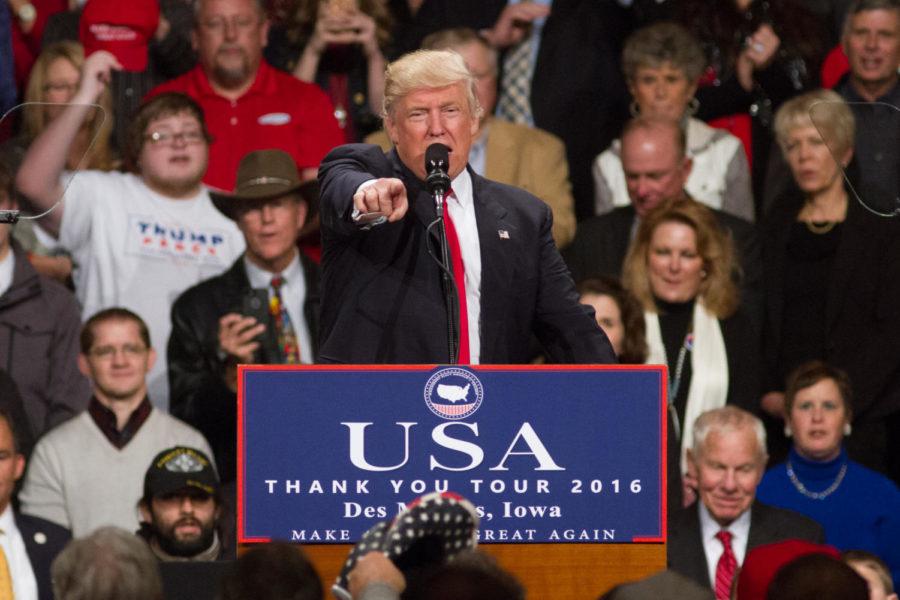Local ag economists: TPP departure was expected, future impacts uncertain
Then-President-elect Donald Trump points at the crowd during a rally as part of his USA Thank You Tour in Des Moines during the evening of Dec. 8, 2016. Trump spoke about the general election, how he would repeal “Obamacare,” bring jobs back to the U.S. and reform care for veterans.
January 26, 2017
President Donald Trump’s decision to withdraw the U.S. from the Trans-Pacific Partnership (TPP) wasn’t a surprise, but its impact on exports, commodity prices and central Iowa farmers remains to be seen.
Trump signed an executive order Monday to withdraw from the TPP, a proposed trade deal between 12 countries in North America and Asia surrounding the Pacific Ocean. Former President Barack Obama was a staunch proponent of the deal.
Iowa State economist Chad Hart said the U.S. withdrawal was likely to happen no matter who was in office, as both Trump and former Democratic candidate Hillary Clinton vowed to oppose the trade deal if elected president.
Hart said the withdrawal won’t directly affect agricultural exports from Iowa and the U.S. right now, but it could allow China, the second-largest economy in the Pacific Rim and one of the notable absentees in the agreement, to resist efforts to reduce some of its agricultural trade barriers.
“The thought was that TPP would put pressure on China to join, or at least start, to be more receptive to being part of trade agreements,” he said.
While campaigning, Trump had said he would be open to signing trade deals with individual countries still in the TPP. Hart said the U.S. already has some bilateral agreements with TPP countries, but those deals and future trade agreements could be affected if countries still within TPP ratify the agreement.
“The trade amongst them may increase due to TPP with the exclusion of U.S. products,” he said.
Scott Stabbe, grain manager at KEY Cooperative in Roland, said crop production figures and weather patterns later this year are likely to have a larger effect on commodity pricing than Trump’s withdrawal from TPP.
However, Stabbe said Trump’s departure from the agreement has left him and other brokers worried about an uncertain future as to whether or not those commodity prices, which several farmers blame for tumbling farm profits, will rise in the future.
“Until we finally find out what the final effects are, the uncertainty is going to be the worst part,” Stabbe said.







